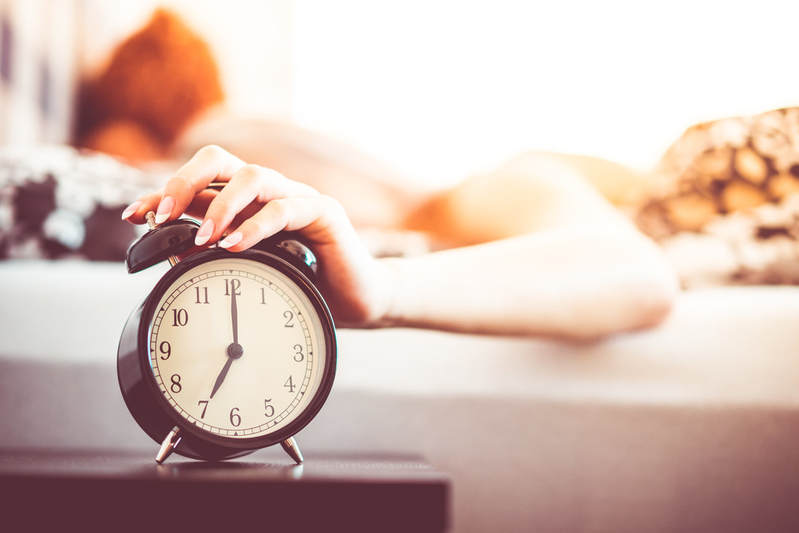Sleep Deprivation and the Immune System
Life at night today differs greatly from how it was a hundred years ago. Control of light, ever-present screens, and a constant stream of internet notifications have led the average person to sleep an hour and a half to two hours less per night over the last century, and an estimated third of the working population now sleeps less than six hours per night. This is increasingly troubling as a recent study from the University of Washington (UW) showed that chronic loss of sleep can lead to a weakened immune system.
A person’s nightly requirement for sleep as well as the ability to fall asleep are said to be highly heritable. These traits are estimated by geneticists to be 31-55% dependent on inherited genes. This makes comparing the effects of sleep on different people very difficult, because there is little to no guarantee that their sleep needs or abilities will be similar. To combat these differences, this study became the first ever to use monozygotic twins as subjects. Monozygotic twins, more commonly known as identical twins, possess nearly identical genetic code, meaning there is a much higher probability that they will share heritable traits such as sleep characteristics.
This study involved 11 pairs of identical twins. Each pair included one twin that slept an average of one hour less per night than the other, absent of any other variables in behavior like sleep disorders or drug use. Sleep was monitored for 14 days and followed by a blood draw for analysis afterwards. Using these samples, researchers found that the twin who slept less displayed an altered genetic code. The genes correlating to processes such as immunity, wound healing, white blood cell response, and blood clotting were all suppressed. These findings agreed with past studies, which reported weakened immune responses to vaccines as well as anecdotal evidence in which people claimed to get sick more easily if they did not sleep enough.
A person’s nightly requirement for sleep as well as the ability to fall asleep are said to be highly heritable. These traits are estimated by geneticists to be 31-55% dependent on inherited genes. This makes comparing the effects of sleep on different people very difficult, because there is little to no guarantee that their sleep needs or abilities will be similar. To combat these differences, this study became the first ever to use monozygotic twins as subjects. Monozygotic twins, more commonly known as identical twins, possess nearly identical genetic code, meaning there is a much higher probability that they will share heritable traits such as sleep characteristics.
This study involved 11 pairs of identical twins. Each pair included one twin that slept an average of one hour less per night than the other, absent of any other variables in behavior like sleep disorders or drug use. Sleep was monitored for 14 days and followed by a blood draw for analysis afterwards. Using these samples, researchers found that the twin who slept less displayed an altered genetic code. The genes correlating to processes such as immunity, wound healing, white blood cell response, and blood clotting were all suppressed. These findings agreed with past studies, which reported weakened immune responses to vaccines as well as anecdotal evidence in which people claimed to get sick more easily if they did not sleep enough.
Image Source: luismmolina
One confusing factor, however, is a finding from another study conducted in Finland that found that short-term sleep deprivation over just a few consecutive nights actually enhanced some of the same immune processes that were found to be suppressed by long-term deprivation in the UW study, which lasted two full weeks. The team said that this difference needs to be further investigated by using larger sample sizes and analyzing more than just the immune system.
Dr. Nathaniel Watson, co-director of the UW Medicine Sleep Center and head of the study recommends seven or more hours of sleep nightly for a healthy immune system. Achieving this much sleep would require changing habits and schedules for both students and adults who work long hours, but the adjustments would be well worth it; a healthy immune system is better at fighting illness, meaning less time under the weather and more time on top of the world.
Dr. Nathaniel Watson, co-director of the UW Medicine Sleep Center and head of the study recommends seven or more hours of sleep nightly for a healthy immune system. Achieving this much sleep would require changing habits and schedules for both students and adults who work long hours, but the adjustments would be well worth it; a healthy immune system is better at fighting illness, meaning less time under the weather and more time on top of the world.
Featured Image Source: Viktor Hanacek
RELATED ARTICLES
|
Vertical Divider
|
Vertical Divider
|
Vertical Divider
|





